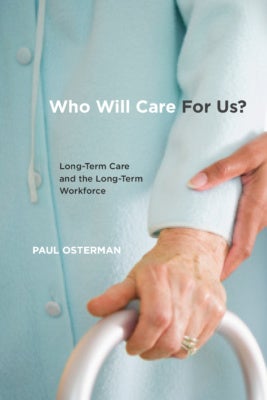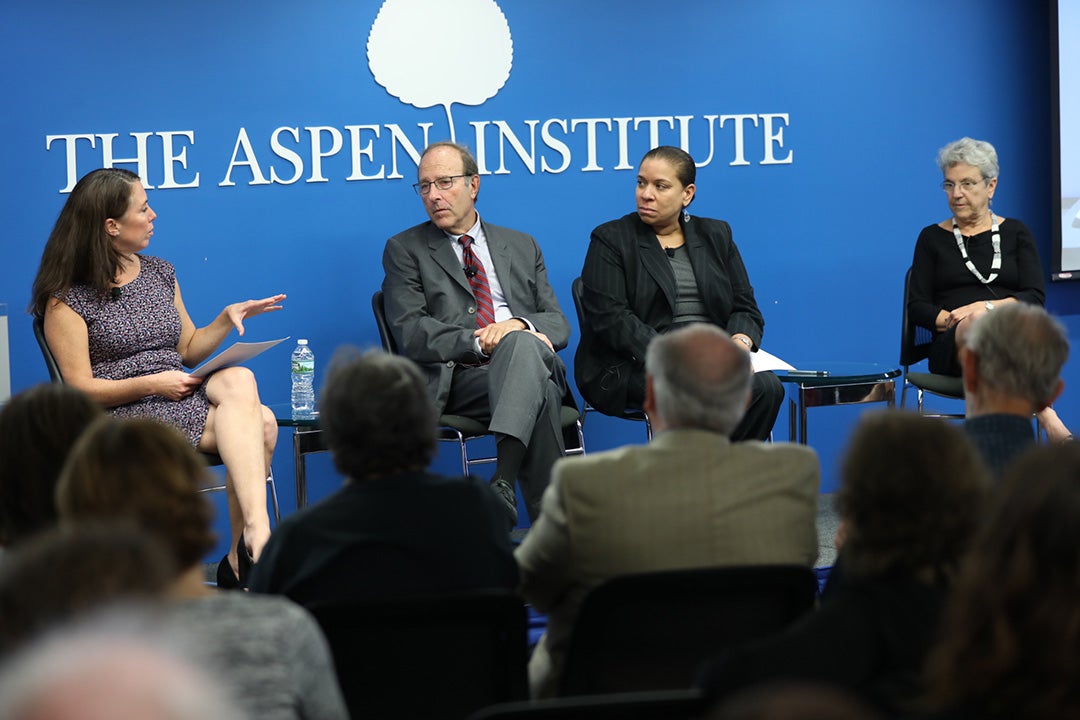The Caring Economy: How to Improve Service and Work in the Long-Term Care Industry
About this event
 The American population is getting older. The US Census estimates that, in 2050, the population aged 65 and over will be 83.7 million, almost double its estimated population in 2012, and the surviving baby boomers will be over the age of 85. As the United States ages, direct care workers, such as home care aides and certified nursing assistants, will become essential to many more families. Yet these workers tend to be low-paid and poorly trained and receive little respect for the critical work that they do. Is such a workforce capable of addressing the needs of our aging population? How can we improve the quality of work and healthcare services in an industry of growing national importance?
The American population is getting older. The US Census estimates that, in 2050, the population aged 65 and over will be 83.7 million, almost double its estimated population in 2012, and the surviving baby boomers will be over the age of 85. As the United States ages, direct care workers, such as home care aides and certified nursing assistants, will become essential to many more families. Yet these workers tend to be low-paid and poorly trained and receive little respect for the critical work that they do. Is such a workforce capable of addressing the needs of our aging population? How can we improve the quality of work and healthcare services in an industry of growing national importance?
This panel discussion on work and service in the long-term care industry was preceded by opening remarks from MIT Economist Paul Osterman about his new book, Who Will Care for Us? (Russell Sage Foundation, 2017), in which he demonstrates the importance of restructuring the long-term care industry and establishing a new relationship among direct care workers, patients, and the medical system.
Featured speakers

Paul Osterman @ostermanpaul
Nanyang Technological University Professor and Professor of Human Resources and Management, MIT
Co-Director, MIT Sloan Institute for Work and Employment Research @MIT_IWER
Paul Osterman has focused his research on changes in work organization within companies, career patterns and processes within firms, economic development, urban poverty, and public policy surrounding skills training and employment programs. He has written extensively on these topics and more in academic journal articles, policy issue papers, and numerous books. Paul previously served as Deputy Dean of the MIT Sloan School, has been a senior administrator of job training programs for the Commonwealth of Massachusetts, and has consulted widely for government agencies, foundations, community groups, firms, and public interest organizations. He received his B.A. from Oberlin College and his Ph.D. in economics from MIT.

Judy Feder
Professor, Georgetown University McCourt School of Public Policy @McCourtSchool
Judy Feder is a professor of public policy and former dean of the McCourt School of Public Policy at Georgetown University. A nationally-recognized leader in health policy, Ms. Feder has made her mark on the nation’s health insurance system, through both scholarship and public service. Since the late 1980s, Ms. Feder has actively promoted effective health reform, including as staff director of the congressional Pepper Commission (chaired by Sen. John D. Rockefeller IV) in 1989-90; principal deputy assistant secretary for planning and evaluation at the Department of Health and Human Services in former President Bill Clinton’s first term; a senior fellow at the Center for American Progress (2008-2011) and, today, as an Institute Fellow at the Urban Institute. Ms. Feder is an elected member of the National Academy of Medicine, the National Academy of Public Administration, and the National Academy of Social Insurance; a former chair and board member of AcademyHealth; a board member of the Center for American Progress Action Fund, the Center for Medicare Advocacy and the Northern Virginia Health Foundation; and a member of the Hamilton Project’s Advisory Council. Ms. Feder is a political scientist, with a B.A. from Brandeis University, as well as a master’s and Ph.D. from Harvard University.

Adria Powell
President, Cooperative Home Care Associates
As CHCA’s President, Adria Powell oversees the cooperative’s work to provide high-quality care, support its workers and worker-owners, and sustainably grow to serve more clients. Ms. Powell joined Cooperative Home Care Associates as a Coordinator in 1993. Since that time, she has helped CHCA to grow from a small cooperative to one that employs more than 2,100 staff. Today, Ms. Powell supervises the Vice Presidents of the cooperative’s three divisions: Operations, Clinical Services, and Finance. She works closely with these teams to ensure that the organization maintains the best quality of services possible, by maintaining a deep investment in the development of the direct care workforce. In addition to guiding CHCA’s ongoing strategic planning efforts, Ms. Powell has advocated on behalf of the cooperative’s workers for adequate funding for rates that support the cost of home care services and has collaborated with the union to support home care workers.
She earned her bachelor’s degree in psychology from Boston College in 1993. In 2000, she earned her Masters of Public Administration in Health Policy and Management from New York University.
Moderator

Alison Fitzgerald Kodjak @alikodjakNPR
Health Policy Correspondent, NPR @NPR
Alison Fitzgerald Kodjak’s work focuses on the business and politics of health care and how those forces flow through to the general public. Her stories about drug prices, limits on insurance and changes in Medicare and Medicaid appear on NPR’s shows and in the Shots blog. She joined NPR in September 2015 after a nearly two-decade career in print journalism, where she won several awards — including three George Polk Awards — as an economics, finance, and investigative reporter. Alison’s previous work includes several years at the Center for Public Integrity, leading projects in financial, telecom, and political reporting. Her work as both reporter and editor on the foreclosure crisis in Florida, on Warren Buffet’s predatory mobile home businesses, on the telecom industry, and on offshore banking practices were honored by several journalism organizations. Prior to joining the Center, Alison spent more than a decade at Bloomberg News, where she wrote about the convergence of politics, government, and economics. She interviewed chairmen of the Federal Reserve and traveled the world with two US Treasury secretaries. Alison is a graduate of Georgetown University and Northwestern University’s Medill School of Journalism.
About this series
This event is part of the Working in America series, an ongoing discussion series hosted by the Aspen Institute Economic Opportunities Program that highlights an array of critical issues affecting low- and moderate-income workers in the United States and ideas for improving and expanding economic opportunities for working people. For more information, visit as.pn/workinginamerica.
#talkgoodjobs with us
Join the conversation on Twitter by following @AspenWorkforce and tweeting with the hashtag #talkgoodjobs.
